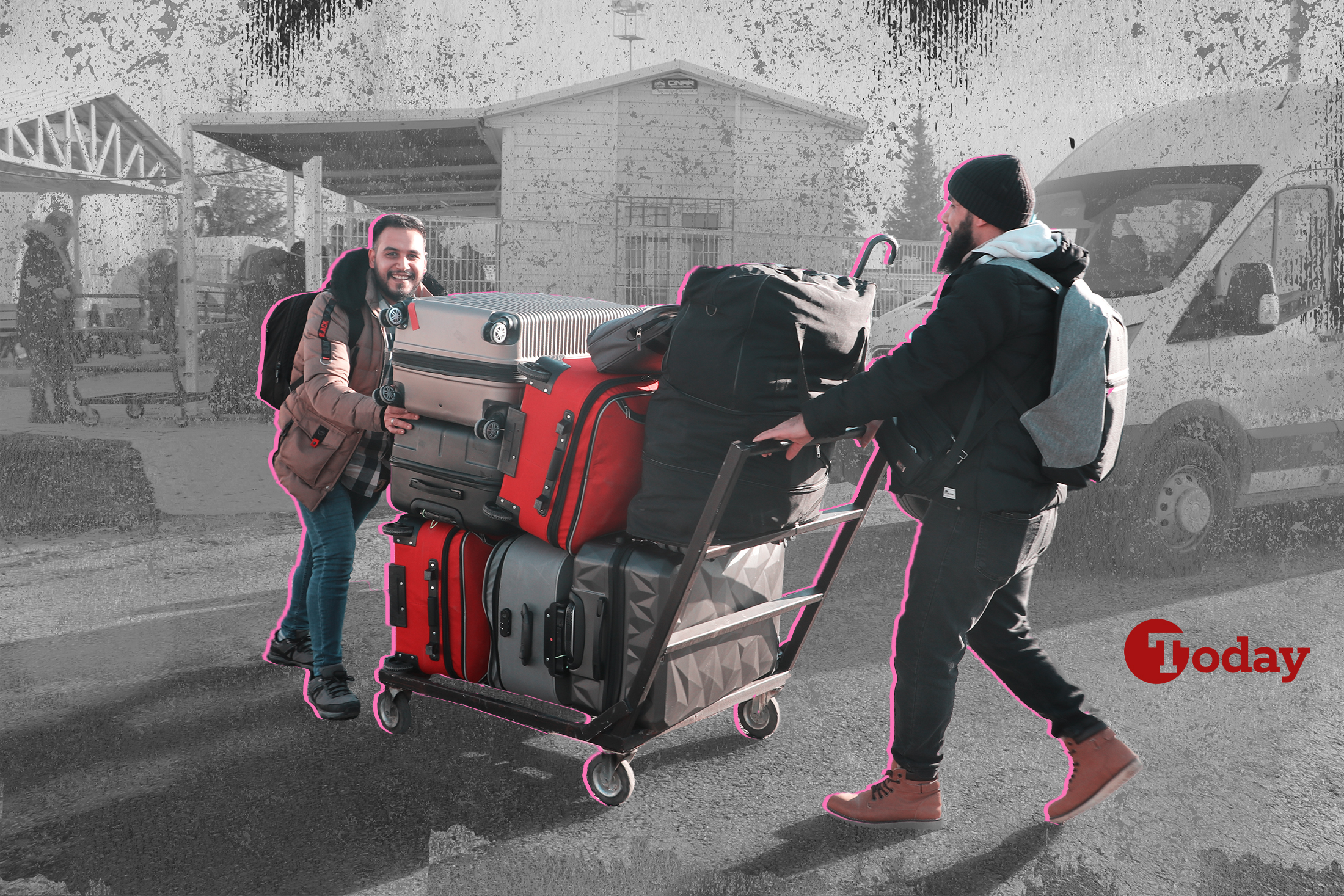
“Home.”
“My teacher says home is where the heart is, but what if you have your heart in two places? Can we have two homes in this (huge) world?” Ehtisham*, who just turned nine, asked pensively.
He was born and raised in Türkiye’s Kayseri but had always imagined Syria’s Damascus, the place his parents had always spoken of with quiet reverence, as his abode.
Ehtisham completed his elementary schooling before joining a football academy in Türkiye. He aspires to become a prolific footballer like the famed young Turkish football wunderkind Arda Guler, but now it’s time...time to return home.
His story is no different from the 3.2 million Syrian refugees Türkiye hosts, being one of the world's largest refugee-hosting countries.
Like Ehtisham’s family, there were many celebrating the collapse of the 61-year Baath regime with immense joy in Istanbul right after the fall of former Syrian regime leader Bashar al-Assad in Damascus on Dec. 8.
Jubilation, fear of the unknown, and hope reigned in the Fatih streets, among many other districts of the metropolis.
“What’s next?” was the looming question on many minds.
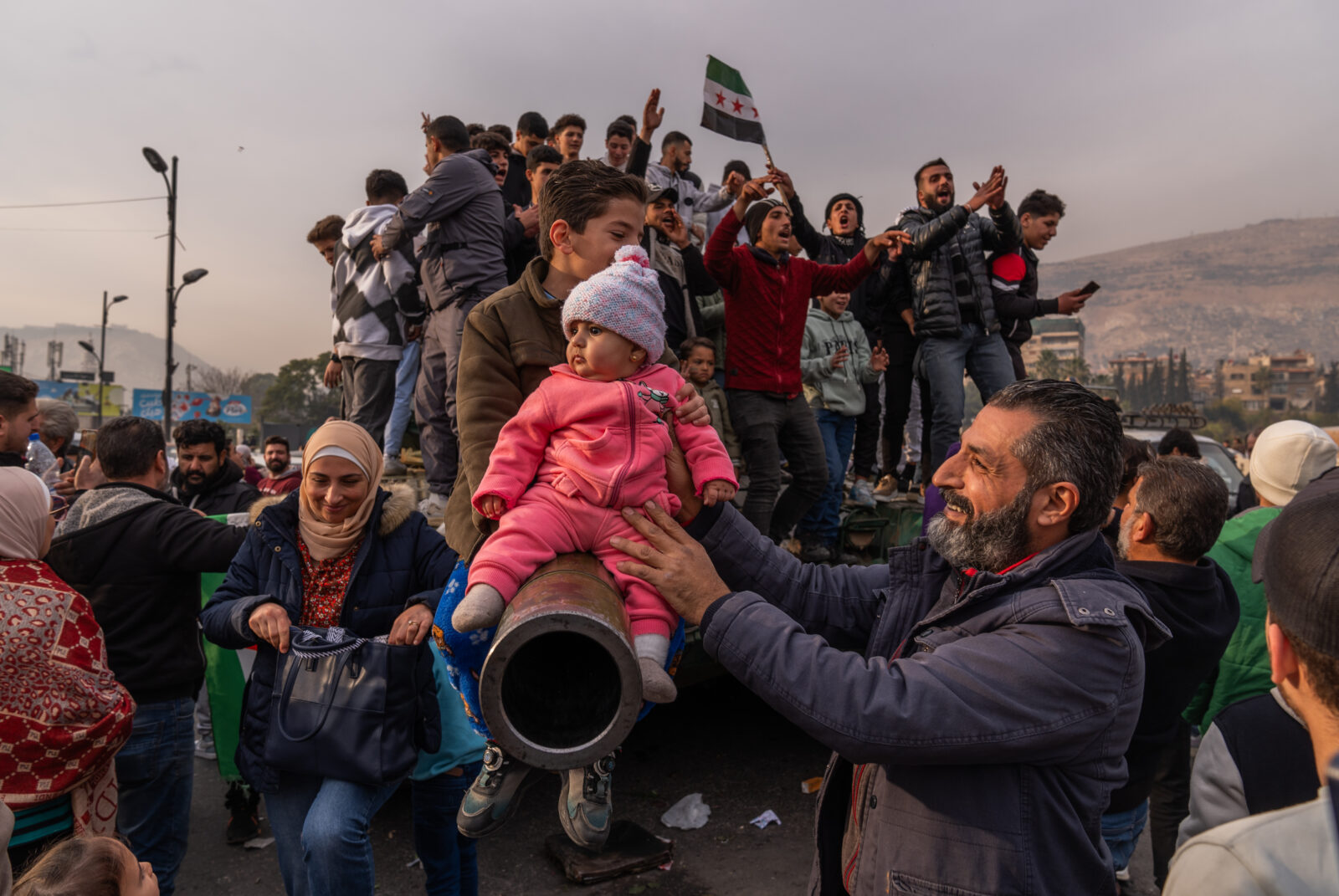
A significant influx of Syrian refugees into Türkiye took place between 2012 and 2015 when millions fled the Syrian Civil War, saving themselves from intensified conflict, human rights violations and economic afflictions.
“With Assad’s fall, a zillion reasons for which we had fled our country are now all gone,” said Yousef Saleh, a Syrian sociologist and social activist based in Istanbul.
He had escaped the tyranny of the Assad government, arriving in Türkiye from Aleppo in 2013 when he was just 22. But now, being a father of two, he seems certain about his family’s future in Syria.
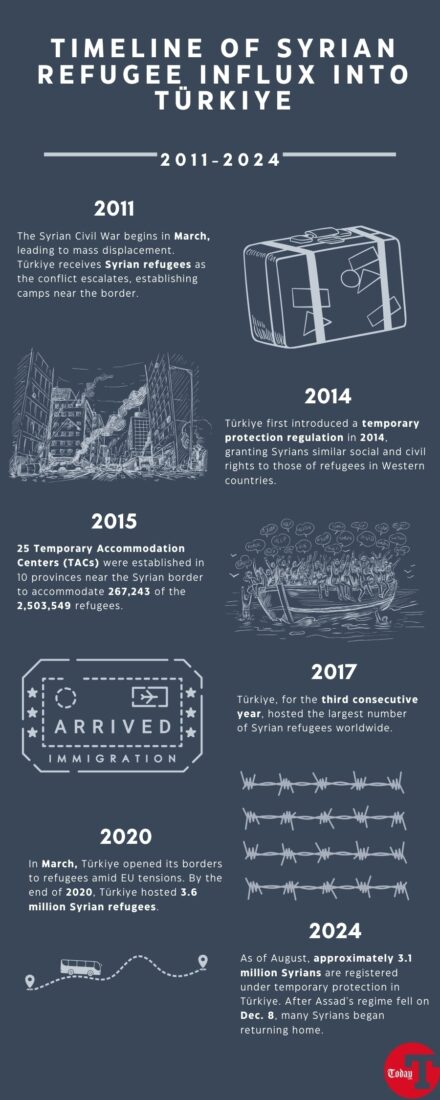
“I am extremely happy. This is the first time in my life that I belong somewhere. This feeling of belonging is amazing,” Saleh shared with excitement.
But Saleh knows that the road back to Syria won’t be plain sailing, either emotionally or practically. Among many things to be taken care of, legal documentation tops the list.
Saleh explained that the Turkish government has launched a portal to facilitate safe voluntary returns.
“With this new portal, it seems like things will proceed smoothly, but some Syrians are reluctant to apply, as doing so means giving up their temporary protection ID and leaving Türkiye permanently. Nobody is forcing anyone right now, but uncertainty still looms large.”
Saleh also suggested that the decision could become easier if Türkiye or other countries allowed temporary visits, which are currently unavailable.
“I feel the Syrian refugees are yearning for security and assurance before wrapping up their lives once again and making such a high-stakes decision. This reluctance, or rather fear, likely stems from the torment they’ve endured, compounded by years of displacement and fear,” he shared with a sigh.
The first step, Saleh said, is finalizing all the necessary legal documentation.
Returnees are allowed to enter Syria through officially assigned border gates in Türkiye, with women and children given priority. Ankara, up to December 2024, has opened several crossings to enable the voluntary and safe return of Syrian refugees to their country.
These border crossings include the Cilvegozu Border Crossing in Antakya, which is connected to the Syrian gate of Bab al-Hawa, where hundreds of refugees wait in line.
The Oncupinar Border Crossing in Kilis, which is connected to the Syrian gate of Bab al-Salameh, has also seen huge numbers of refugees coming in. The Yayladagi Border Gate in Hatay province has been opened for the safe return of the refugees as well.
Given the volatile political climate in Syria, these initiatives come in line with Ankara's broader efforts to enable the safe return of refugees.
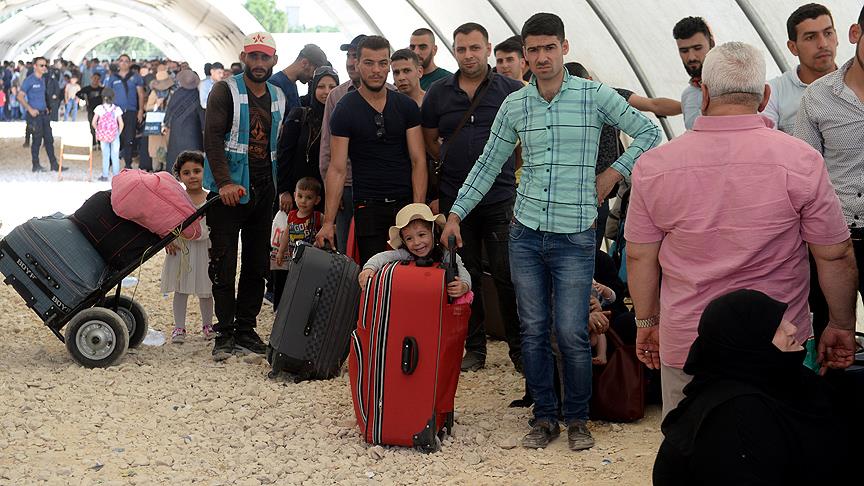
But packing years spent in Türkiye in a suitcase and crossing the border gates is just the tip of the iceberg.
Ninety percent of Syria’s population remains below the poverty line. After Assad’s fall, it’s hard to predict what’s next.
Putting forward his concerns and the uncertainty jeopardizing the future, Saleh said, “I am under no illusions regarding the rocky road ahead, but I still want to return home. Living in Türkiye is a constant reminder to me that I am a Syrian and I have to return home.”
He also pointed out the rising anti-Syrian sentiments in some parts of the country, the unspoken cultural divide, and the mounting economic woes.
“Life as a refugee in any part of the world is not easy. It comes with good and bad experiences,” he said, recalling his landlord, who was a 78-year-old Turkish man. He affectionately calls him "baba" (father in Turkish).
Saleh mentioned how kind he was and how he will always cherish his unwavering support over the years. “Acceptance is a process," he said. “It takes time.”
"All these experiences don't concern how good or bad a person is. It’s all about how considerate and kind you are,” Saleh observed, highlighting both the troubles and the little acts of kindness that he experienced during his journey in Türkiye.
With mounting unpredictability and instability surrounding the transition of Syrian refugees from Türkiye to Syria, another crucial issue often flies under the radar.
Back in 2021, as per UNICEF, there were approximately 1.7 million Syrian refugee children in Türkiye. Given the current statistics, a significant portion of the Syrian refugee population in Türkiye is likely under 18.
“The majority of Syrian refugees in Türkiye are teenagers or people in their early 20s. Having been born in Türkiye, they attended Turkish schools and formed deep connections with Turkish friends.
Many of these young Syrians don’t even speak Arabic. This transition will undoubtedly be pivotal and challenging for them,” Saleh noted.
He explained that, despite his relentless efforts to speak Arabic with his son at home, he speaks Turkish, as he attends a Turkish public school and plays with Turkish friends.
Noor ul-Saba* is facing a similar fate.
“I might not even continue my education when I go back to Syria because I don’t know Arabic,” admitted 12-year-old Noor, who never stepped outside Istanbul.
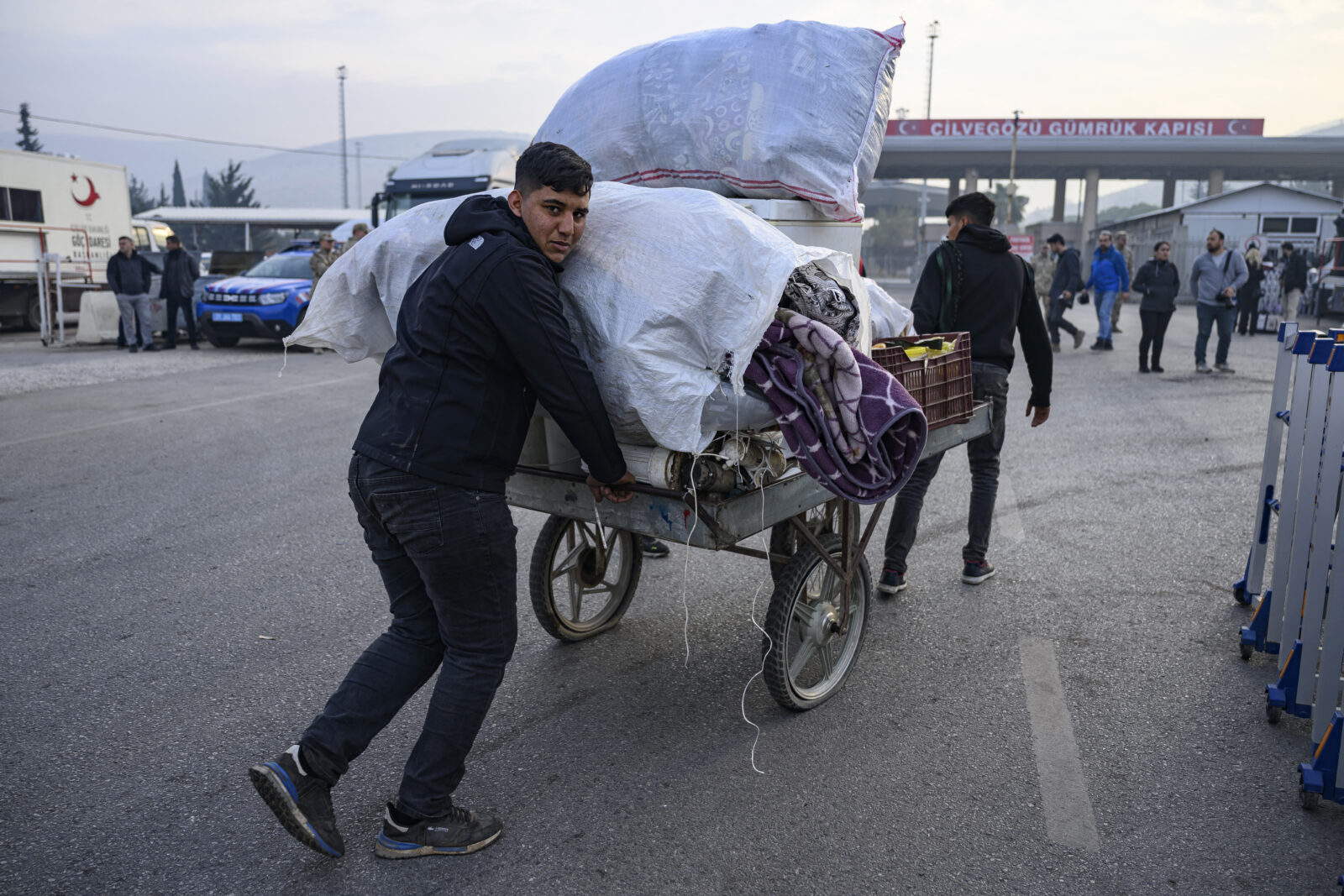
Pundits raise concerns that language barriers, cultural differences and contrasting social norms could trigger an identity crisis among young Syrians returning to Syria, especially those who were born and raised in Türkiye.
Having grown up in a different cultural environment, many may struggle to adapt to Syria's post-conflict realities and to build a sense of belonging to both countries.
The dominance of Turkish culture in their upbringing and their limited fluency in Arabic may hinder their access to education, employment and social integration when moved to Türkiye
“We might be perceived as ‘outsiders’ in Syria despite our roots and heritage, while in Türkiye, we face discrimination as refugees.
So, I ask myself sometimes, who are we, exactly?” questioned Ehtisham, expressing concerns that dual exclusion could amplify feelings of alienation.
Despite these challenges, Saleh remains positive about the future. When asked about his expectations for his life in Syria, he chuckled lightly.
“Well, that’s a question you should ask me when I’m in Syria. To be honest, the future doesn’t worry me much; it’s something we’ll build together,” he said, exuding hope for better days ahead.
*Names have been changed to maintain anonymity.